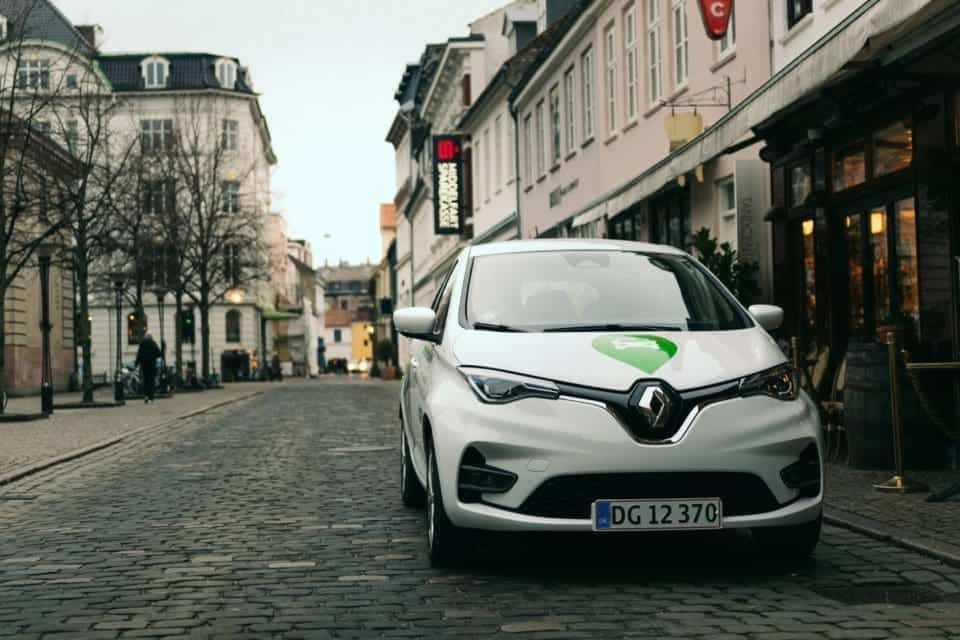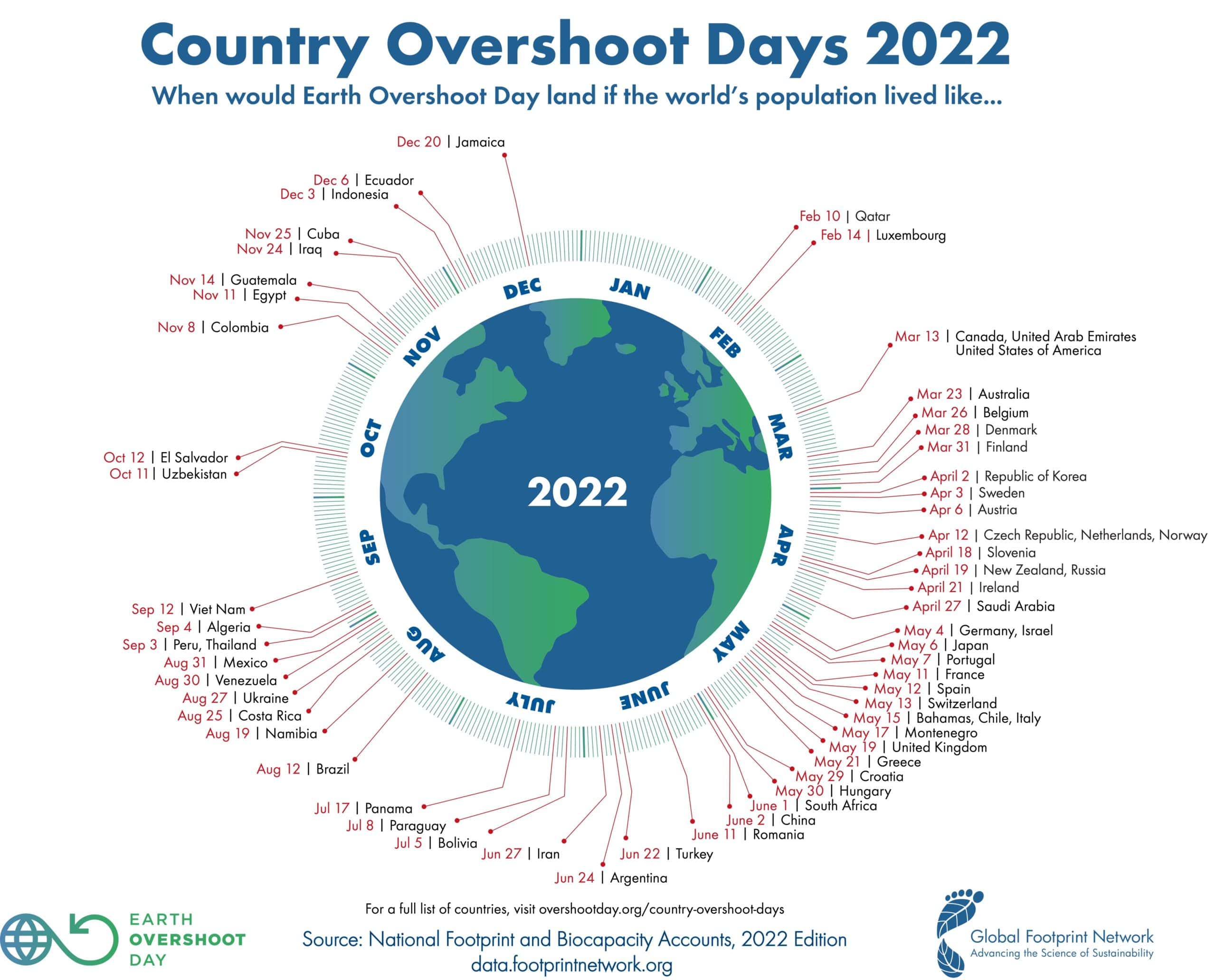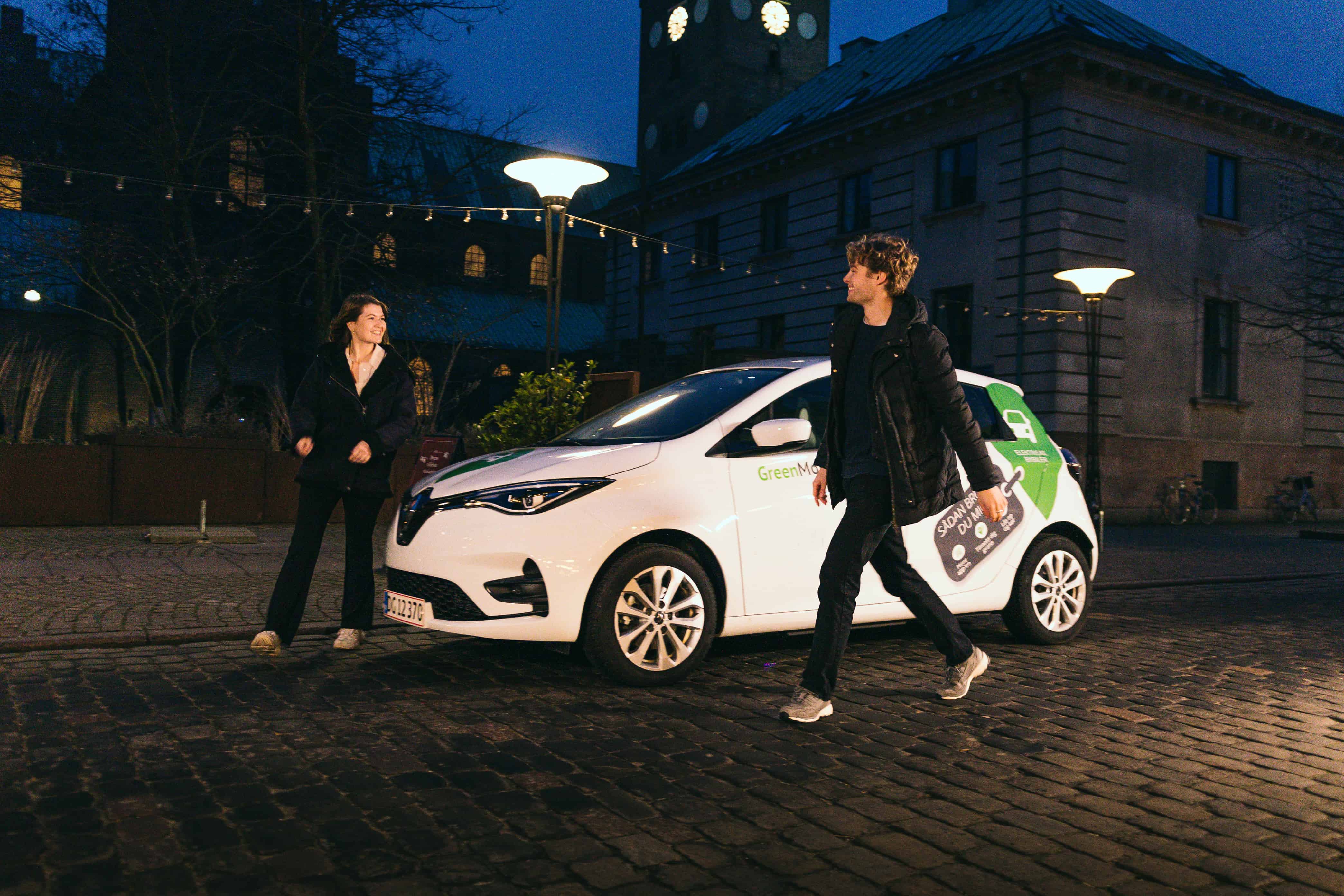Denmark’s Overshoot Day 2022

Today, the 28th of March, we are crossing Earth Overshoot Day in Denmark. On this day, we have used up the renewable sources that the Earth can provide for an entire year in Denmark. In this regard, GreenMobility focuses on the green transition and how we can reduce our climate footprint by reducing private cars in the cities.
Indholdsfortegnelse
What is Overshoot Day?
Maybe you have heard of Earth Overshoot Day? Earth Overshoot Day marks the date when people across the entire world have used up the resources that the Earth can regenerate in that year. In 2021, Earth Overshoot Day fell on July 29th.
A country’s Overshoot Day marks when a country has used up its resources. In 2022, Denmark’s Overshoot Day is on the 28th of March. In 2021, it fell on March 26, two days earlier. The date is calculated each year by the Global Footprint Network based on Denmark’s ecological footprint and global biological capacity. When the ecological footprint exceeds nature’s reproduction of resources, overconsumption happens.1
"There don’t exist enough resources on the planet for everyone to own a car. And it is expensive and resource-intensive to procure the materials.

How do we move the date?
In order to reduce our climate footprint, a transition of the transport sector is required. This means, for example, a reduction in the number of private cars in the cities. Private cars are responsible for around 12% of total CO2 emissions in Europe alone.2
Over time, there will only be more people in the urban areas. But does this mean more cars in the cities too? The answer is no. We need to share the cars. There are not enough resources on the planet for everyone to own a car. And it is both expensive and resource-intensive to procure these materials. Right now, 55% of the world’s population lives in urban areas, and this number is expected to increase to approx. 68% by 2050.3 We will therefore need better utilization of the resources already available.
That is why GreenMobility works to ensure that as few cars as possible transport as many people around as possible to save resources. And that these cars are electric, so we reduce our CO2 emissions while driving. Our vision is to expand our 100% electric car-sharing solution to more European cities so more can access a car without owning it. GreenMobility is thereby working to be present in 35 European cities by 2025.
If we can share the cars, we can reduce pollution in the city and make a positive climate change. And you can make a difference by sharing hundreds of electric cars instead of owning a petrol or diesel car yourself.

What can you do yourself?
Skip no. 1 or 2 car
Do you own a car and live in the city? Then you can consider whether your transportation needs can be covered by having access to shareable cars, public transport, and bicycle. An average family in Denmark spends more than DKK 3,000 a month on owning a car. For that money, you can drive many hours in an electric car. At the same time, you avoid the costs of fuel, parking, insurance, taxes, etc.
GreenMobility’s latest customer survey shows that 35% have sold or omitted to buy a car because they use GreenMobility. This has increased 7% from 2021. But we need even more people to skip the no. 1 or no. 2 car in the city, which anyways stands still 95% of the time. Is it now that you are going to give up your private car? We hope so!
Sharing economy as a mindset
As a private person, you can help make a difference by balancing your consumption. Recycling and sharing economy, where you reduce the waste or pass things on to others, can make a difference. For example, you can make sure the clothes you no longer use are being recycled, avoid food waste, and share cars with others too. When we share things and are not financially tied to for instance a car, the feeling of freedom can be a great benefit.
- https://www.wwf.dk/nyhed/earth-overshoot-day-2021/
- https://ec.europa.eu/clima/eu-action/transport-emissions/road-transport-reducing-co2-emissions-vehicles/co2-emission-performance-standards-cars-and-vans_en
- https://www.who.int/health-topics/urban-health#tab=tab_1
